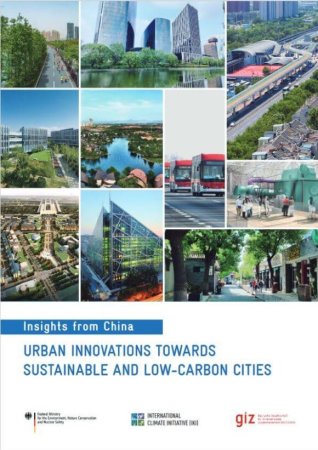Transforming Urban Mobility: The Bicycle Highway in Beijing
This video is a part of the series, with which we want to bring attention to selected cases of sustainable and low-carbon urban innovation from China, which may be interesting to learn about as “best practices” for other regions.
Beijing strives to become a biking-friendly world-class mega city. The construction of a 3,200 km biking network and 9 “soft mobility” pilot zones in the 5th Ring Road area of the Chinese capital were completed in 2020. As an important segment of the biking network, a 6.5 km bicycle highway was inaugurated in 2019. Among other benefits, the bike highway provides for faster and safer commuting by bike between densely populated neighbourhoods.
INSIGHTS FROM CHINA:
Urban Innovations Towards Sustainable And Low-Carbon Cities

With this publication we want to provide notable, but not internationally well-known examples of innovative, green projects from China. We have selected 10 case studies, which are described in relation to internationally agreed goals: Reducing greenhouse gases, managing storm water runoff, promoting biodiversity, integrating urban life, work and leisure, and promoting a circular economy – all common challenges for large Chinese cities and for cities in other parts of the world.
The sustainability impact of the cases described is measured especially in terms of the their effects in promoting biodiversity, reducing the cities’ greenhouse gas emissions, their contribution to urban resilience, their degree of resource efficiency, and their potential to foster sustainable lifestyles for urban dwellers. These parameters have a strong impact on the consequences of China’s ongoing, rapid urbanisation, which, if countermeasures are not diligently considered in all urban planning processes, may potentially lead to further rapidly growing energy consumption, climate change and environmental degradation.